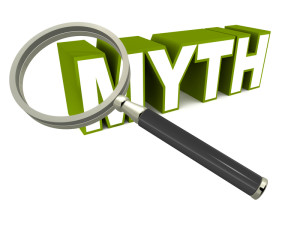
A comment I often hear from people who are dissatisfied with some aspect of their lives is that they just need to make different choices. On the one hand, it seems like a no-brainer, right? And at least it acknowledges we have a degree of responsibility for the situations we find ourselves in.
It also sounds relatively straightforward: if you want a different outcome, make a different choice. But since making a different choice is anything but simple or straightforward, this isn’t an effective strategy. Unfortunately, the fact that it’s ineffective doesn’t stop people from believing it’s true.
Having choices—or believing that we do—gives us the illusion of having freedom.
But the illusion of freedom is not the same as actual freedom.
Would you rather have something that really matters to you or would you rather have the freedom to not have it? If you equate choice with freedom, you’re likely to opt for holding onto the freedom to not have what you really want. This is an even more obviously ineffective strategy, but it’s a seductive one and our culture is deeply mired in it.
Let’s break it down. Imagine there’s something you want: a highly desirable outcome that really matters to you.
- Would you rather have the highly desirable outcome that really matters to you?
- Or would you rather have the option to not do what you need to do to create that outcome (in other words, the freedom to not have it)?
Why would anyone in their right mind “choose” to not do the things they need to do in order to achieve an outcome that is highly desirable to them? That would seem counterproductive at the very least.
You Are Certainly Not the Boss of Your Brain*
The unconscious part of your brain, which has no interest in your highly desirable outcome, is invested in maintaining the status quo. When you “choose” not to do whatever you need to do to achieve that outcome, you end up reinforcing the status quo instead of getting closer to what you want. In fact, no actual choice is involved in maintaining the status quo.
It takes no effort or awareness or intention on your part to continue doing what you’ve always done. The unconscious part of your brain can have you continue doing what you’ve been doing ad infinitum, while you preserve the fiction that you’re consciously choosing to continue doing those things.
That’s how you end up with the illusion of freedom rather than actual freedom. Actual freedom involves learning how to change the status quo, not giving in to it.
Certainly you have reasons and explanations for why you might “choose” to not do what you intended to do to help you achieve that highly desirable outcome. You didn’t have enough time. You were tired. Something came up that you had to respond to. You just didn’t feel like it. You really wanted to do whatever it was you ended up doing. You’ll make a different choice tomorrow or the next day.
No matter how many times you run through this type of scenario, chances are excellent that you’ll prefer to believe you are actually making choices, even if those choices are clearly not in your own best interest or are the opposite of what you intended to do.
And, counterintuitive as it may seem, believing you have a choice about taking a particular action that would disrupt the status quo decreases the odds you will take it.
When you give up the freedom to not have what you really want—when you allow yourself no choice in regard to taking that action—you begin to change your own status quo. That’s far more powerful, far more freeing, than simply giving in.
Why settle for the illusion of freedom when you can have the real thing?
Note: This is the first in a series of posts. To follow the thread, select the category Making Different Choices in the box in the sidebar under Explore.



 These six beliefs are so pervasive they seem to be embedded in our culture. Most of them are meant to be motivational, but because they aren’t true, belief in these myths can have unintended consequences that harm rather than help. Ultimately, we need less external motivation and more straightforward education about how the brain and the mind actually work. Then we’ll be able to generate our own motivation—from inside.
These six beliefs are so pervasive they seem to be embedded in our culture. Most of them are meant to be motivational, but because they aren’t true, belief in these myths can have unintended consequences that harm rather than help. Ultimately, we need less external motivation and more straightforward education about how the brain and the mind actually work. Then we’ll be able to generate our own motivation—from inside.